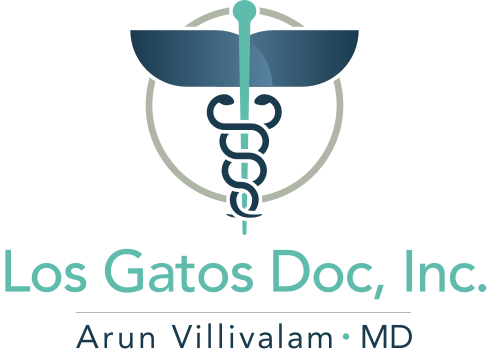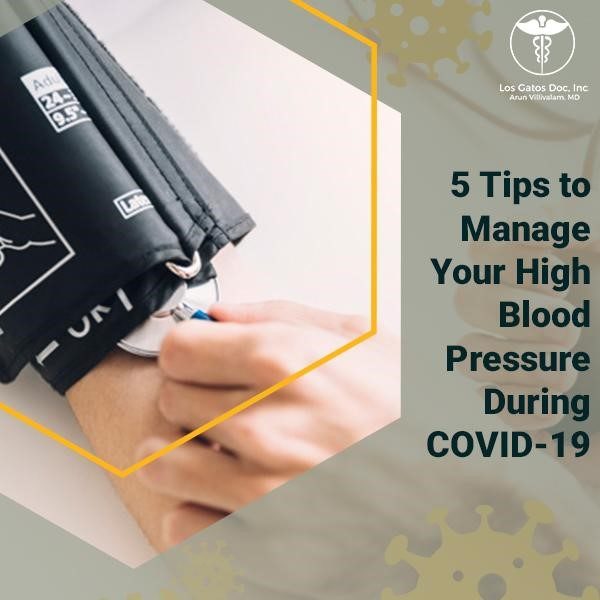The lifetime risk of developing hypertension is 90%, according to the Framingham Heart Study. There are 9 out of 10 chances that you will develop high blood pressure if you don’t already have this condition by ages 45 to 65.
What is high blood pressure?
High blood pressure or hypertension is defined as a systolic blood pressure of 130 mmHg and above and diastolic blood pressure of 80 mm Hg and above. Amidst the COVID-19 pandemic, the health risks from unmanaged hypertension have been amplified. Research shows that people with hypertension may be more likely to:
- Get COVID-19
- Have aggravated symptoms
- Face higher mortality rates
How COVID-19 affects people with high blood pressure?
The coronavirus puts patients of hypertension at a higher risk of COVID-19 complications, as it can severely damage the cardiovascular system.
When not controlled, hypertension damages the arteries, leading to a reduced amount of blood flowing to the heart. This causes the heart to work harder to pump enough blood to the rest of the body. In such a state, COVID-19 could prove serious. This is because the novel coronavirus can lead to an inflammation of the heart muscles which can make it harder for the heart to pump the required amount of oxygen-rich blood. If the patient is also suffering from plaque buildup in the arteries, the coronavirus can break the plaque and cause a heart attack.
How to manage hypertension and protect yourself from the COVID-19 virus
While everyone needs to be cautious during the current pandemic, patients with hypertension need to take more precautions than others.
Your commitment to control and reduce high blood pressure is key to managing this chronic condition, especially during the COVID-19 pandemic. Here are simple ways to manage your high blood pressure during the pandemic.
- Follow the treatment plan for hypertension
Consult your primary care doctor regarding your treatment plan for hypertension during the pandemic.
A recent Current Atherosclerosis Reports study suggests that long-term use of medications for high blood pressure could reduce coronavirus infection severity and improve survival.
It would be best if you continue taking your regular antihypertensive treatment to prevent a hospital visit, which could place you at a higher risk of exposure to the coronavirus. Also, stock up on essential medicines at home to treat mild illnesses.
Unless your doctor tells you, it is best not to discontinue the use of hypertension medications.
- Practice COVID-19 safety measures and precautions
Stay at home and limit contact with others as much as possible by avoiding crowds and anyone who is sick. Always wear a face mask when you go outside, and maintain at least 6 feet distance from others.
Wash your hands often with warm water and soap for at least 20 seconds or use an alcohol-based sanitizer. Disinfect frequently touched surfaces like doorknobs and kitchen countertops.
Even though there is no coronavirus vaccine available yet, the American College of Cardiology recommends staying up-to-date on all your vaccines.
Discuss with your doctor about taking a pneumococcal vaccine to prevent pneumonia, a common complication of COVID-19. Get a flu vaccine; flu symptoms are easy to confuse with coronavirus symptoms, making it harder for doctors to diagnose if you do fall sick.
- Eat a heart-healthy diet
A heart-healthy diet can heal and transform your body. A heart-healthy diet contains a high amount of good fats and potassium, along with low amounts of sodium (salt) and bad fats.
For example, the DASH eating plan or Mediterranean diet, which contains plenty of fruits, vegetables, and whole grains, is an example of an effective eating plan to lower blood pressure. Eating a Mediterranean diet can reduce heart disease risk by 30%. It is rich in olive oil, fruits, vegetables, nuts, and fish, low in red or processed meats, and moderate in the amounts of cheese and wine you can consume.
Simple diet changes can yield huge health benefits, such as:
- Increasing your soluble fiber intake from foods like vegetables, lentils, beans, and oats.
- Eliminating artificial trans fats found in processed, packaged foods like cakes and cookies.
- Consuming sugar, along with vitamins and minerals found naturally in fruit.
- Including good or unsaturated fats found in foods like nuts, olives, avocado, and fish.
- Get regular exercise
Regular exercise helps you maintain a healthy weight, burn body fat, lower your blood pressure and blood sugar. Being overweight increases your risk of hypertension and plaque buildup. Losing as little as 5-10% of your body weight has a significant impact on your health.
If you have never exercised earlier, start slow until you build your routine and stamina. Aim for 30 minutes of moderately intense exercise at least five days a week.
Discuss with your doctor before starting a new fitness routine.
- Stop smoking and limit drinking
Kick the habit of smoking as it raises your blood pressure, damages the lining of the arteries, and increases your risk for heart attack and stroke.
Drinking excess alcohol can raise your blood pressure and add extra calories, causing weight gain. Men should have not more than two drinks, and women should limit their alcohol intake to one drink per day.
Final Outlook
The COVID-19 pandemic has taken a toll on our health and wellness.
At Los Gatos Doc, our goal is to help inform and educate our community on health concerns in the current challenging times. Our team has been making consistent efforts to help patients, like you, understand how to prevent and manage hypertension during the pandemic.
If you need consultation on how to make lifestyle changes to treat high blood pressure during the pandemic, family doctors serving the areas of Los Gatos, Campbell, and Saratoga, CA are always available to support your health needs. Call us at 408-520-6040 or schedule a visit at visitlosgatosdoc.com.






